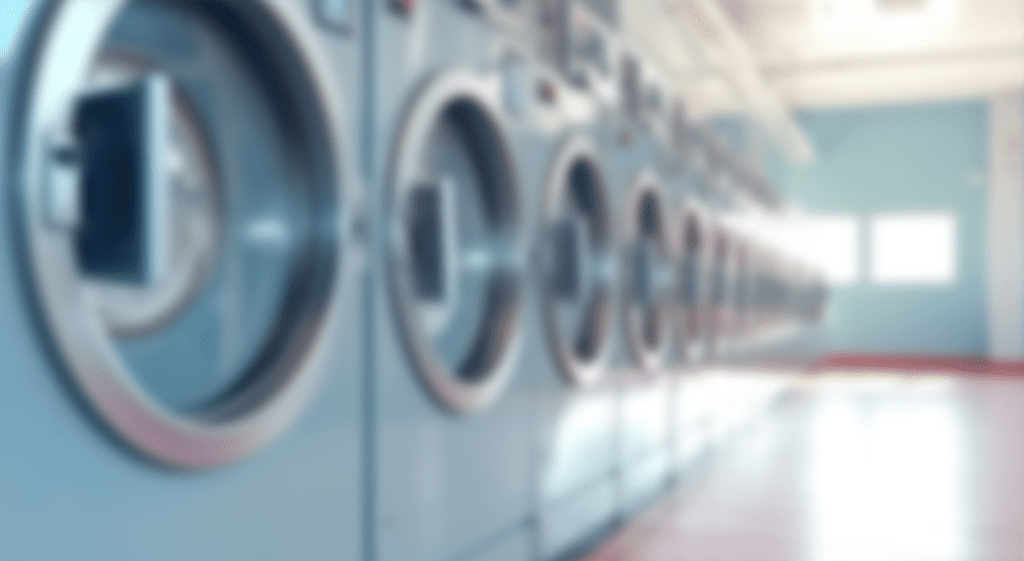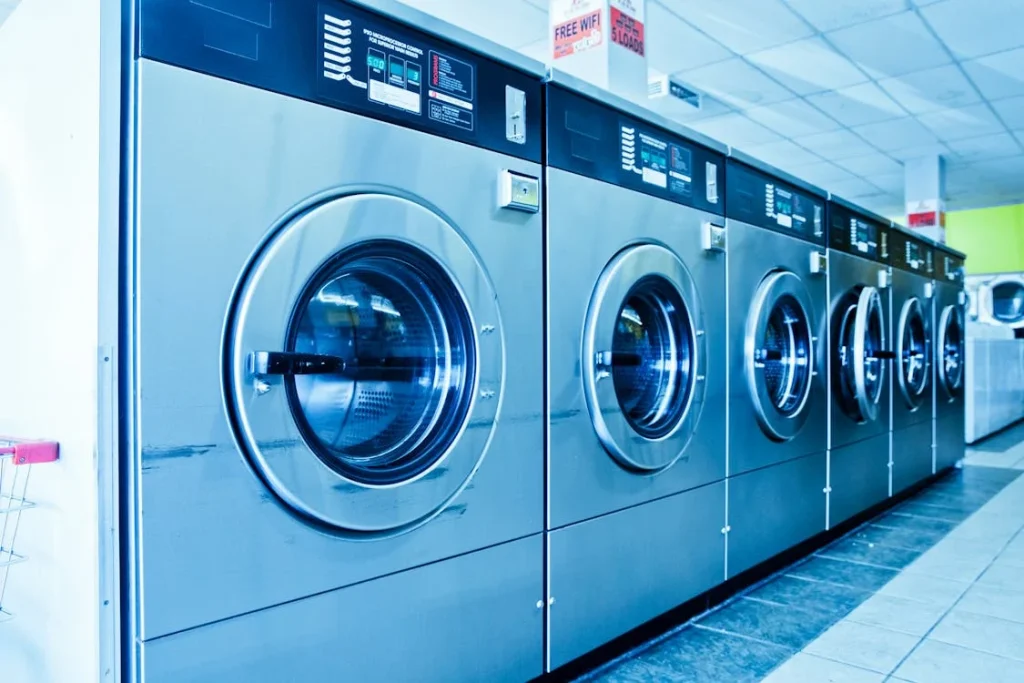Industrial laundry washers are the backbone of large-scale laundry operations, providing high capacity, efficiency, and consistent performance. Whether you run a hotel, hospital, or industrial facility, investing in the right industrial washer can dramatically improve your laundry processes. In this article, we’ll explore the features, benefits, and best models of industrial laundry washers to help you make an informed decision. If you’re looking for expert recommendations, visit Spin Washing for detailed guidance.
Table of Contents
- Benefits of Industrial Laundry Washers
- 1. Improved Cleaning Performance and Consistent Results for High-Volume Laundry Needs
- 2. Lower Operational Costs Through Water, Energy, and Detergent Efficiency
- 3. Time-Saving and Increased Productivity with High-Capacity and Fast Cycle Times
- 4. Environmental Benefits Through Reduced Water and Energy Consumption
- 5. Enhanced Fabric Care with Customizable Wash Cycles and Gentle Handling
- Best Models of Industrial Laundry Washers
- How to Choose the Right Industrial Laundry Washer
- Maintenance Tips for Industrial Laundry Washers
- Conclusion
Benefits of Industrial Laundry Washers
1. Improved Cleaning Performance and Consistent Results for High-Volume Laundry Needs
One of the most important advantages of industrial laundry washers is their ability to deliver consistently clean results, even with heavy soiling. Unlike commercial washers, industrial models use advanced washing technology, including precision water temperature control, high-speed extraction, and customizable wash cycles. These features help remove tough stains, eliminate odors, and ensure that fabrics remain in excellent condition. With larger drum capacities and greater water pressure, these machines handle bulky loads with ease, maintaining a high level of cleaning performance every time.
2. Lower Operational Costs Through Water, Energy, and Detergent Efficiency
Industrial laundry washers are designed to be highly efficient in their use of water, energy, and detergents. Many models are equipped with water recycling systems, energy-saving modes, and chemical dosing systems, ensuring that only the necessary amount of resources is used for each load. This reduces overall utility bills and minimizes waste, making them more environmentally friendly. Over time, the savings in operational costs can be significant, helping businesses reduce their laundry expenses while maintaining high cleaning standards.
➡️ Chart: Potential Savings from Energy-Efficient Washers
| Washer Type | Annual Energy Cost | Annual Water Cost | Total Annual Savings (%) |
| Industrial Washer (High-Efficiency) | $1,200 | $800 | 30% – 40% |
| Standard Washer | $1,800 | $1,200 | 0% |
3. Time-Saving and Increased Productivity with High-Capacity and Fast Cycle Times

Time is money, especially in high-volume industries such as healthcare, hospitality, and commercial laundries. Industrial laundry washers are designed to handle large loads and operate with faster spin cycles, reducing the overall washing time. Many models have load capacities of 50 lbs to over 400 lbs, which allows businesses to process more laundry in fewer cycles. Additionally, features such as programmable wash cycles and automatic detergent dispensing help staff save time and focus on other tasks, improving overall operational efficiency.
4. Environmental Benefits Through Reduced Water and Energy Consumption
Environmental responsibility is a growing concern for many industries. Modern industrial washers are designed with sustainability in mind, featuring water-saving technologies and energy-efficient motors. Many models are ENERGY STAR® certified, meaning they meet strict guidelines for water and energy use. By reducing water and electricity consumption, these washers help businesses lower their carbon footprint and contribute to a more sustainable future. Using less water and energy also means lower utility costs, creating a win-win situation for both the business and the environment.
➡️ Chart: Environmental Impact of Efficient Washers
| Washer Type | Water Usage (per load) | Energy Consumption (per load) | CO₂ Emission Reduction |
| Industrial Washer (High-Efficiency) | 10 gallons | 0.5 kWh | 40% – 50% |
| Standard Washer | 18 gallons | 1.2 kWh | 0% |
5. Enhanced Fabric Care with Customizable Wash Cycles and Gentle Handling
Industrial laundry washers are designed not only to clean but also to protect fabrics. Many models feature customizable wash cycles that allow operators to adjust water temperature, cycle length, and spin speeds based on fabric type and level of soiling. This ensures that delicate fabrics are handled gently while heavily soiled items receive a more vigorous wash. Advanced drum design and load balancing technology further reduce wear and tear on fabrics, helping to extend the lifespan of linens, uniforms, and other textiles.
Best Models of Industrial Laundry Washers
High-Performance Industrial Washers
Brands like Spin Washing offer high-performance models with rapid cycles and superior cleaning efficiency.
Eco-Friendly Industrial Washers
Eco-friendly models are designed to use less water and energy without compromising performance.
Heavy-Duty Industrial Washers
These models are built for industrial-scale operations, handling large loads and tough stains with ease.
Smart Industrial Washers
Smart models include automated controls, remote monitoring, and energy-saving modes for maximum efficiency.
How to Choose the Right Industrial Laundry Washer
1. Assess Your Laundry Needs and Operational Capacity
Before selecting an industrial washer, it’s essential to assess your facility’s daily laundry volume and fabric types. If you process heavy linens, towels, or uniforms, you’ll need a high-capacity model with enhanced spin speeds and programmable cycles. High-volume operations may require multiple washers to avoid bottlenecks during peak times. Understanding your specific needs ensures that you select a model that can keep up with your facility’s demands without sacrificing cleaning performance.
2. Evaluate Energy Efficiency Ratings and Water Usage
Energy and water costs are major expenses for laundry facilities. Choosing an ENERGY STAR® certified model ensures that the washer meets high standards for energy and water efficiency. High-efficiency washers consume less electricity and water while maintaining excellent cleaning power. Investing in energy-efficient equipment not only reduces utility bills but also supports sustainability initiatives, making your business more environmentally responsible.
3. Consider the Total Cost of Ownership Beyond the Purchase Price
While the initial cost of an industrial washer may seem high, it’s important to calculate the total cost of ownership. This includes maintenance costs, water and energy consumption, and expected lifespan. A high-quality, energy-efficient washer may have a higher upfront cost but will often pay for itself over time through lower operational expenses and fewer repair needs.
4. Look for Customization and Flexibility in Wash Cycles and Settings
Not all laundry facilities have the same needs. Selecting a washer with customizable settings allows you to adjust water temperature, spin speed, and detergent levels for different fabric types and soil levels. Some models also feature smart technology that automatically adjusts cycle settings based on load size and fabric type, ensuring optimal cleaning results with minimal waste.
Maintenance Tips for Industrial Laundry Washers
1. Regular Cleaning and Inspections to Prevent Build-Up and Odor Issues
Regular cleaning of the washer drum, detergent compartments, and filters is essential to prevent mold, bacteria, and odor build-up. Running a cleaning cycle with hot water and a descaling agent once a week helps maintain hygiene and prevent residue accumulation. Inspect door seals, gaskets, and hoses regularly for signs of wear or damage, and replace parts as needed to avoid costly repairs.
2. Checking Water and Drainage Systems for Blockages and Proper Flow
Blocked or leaking water lines can affect the washer’s performance and lead to water damage. Check water inlet valves, hoses, and drainage systems regularly to ensure proper flow. Clean any lint or debris from the drainage filter to prevent clogging. Ensuring that the washer is installed on a level surface also prevents vibration and improves drainage efficiency.
3. Monitoring Performance and Troubleshooting Issues Before They Escalate
Keep track of the washer’s performance through built-in monitoring systems or manual checks. If you notice longer cycle times, poor cleaning results, or unusual noises, troubleshoot the issue immediately. Many modern washers are equipped with diagnostic systems that identify problems and suggest solutions. Prompt maintenance helps avoid costly downtime and extends the washer’s lifespan.
Conclusion
Investing in a high-quality industrial laundry washer can significantly improve your laundry efficiency and cost-effectiveness. By understanding the key features, benefits, and top models available, you can select the right washer to meet your business’s needs. If you’re ready to upgrade your laundry system, visit Spin Washing to speak with an expert today!
FAQs
1. What is the difference between an industrial and commercial washer?
Industrial washers are designed for large-scale, high-volume use, while commercial washers are better suited for small to medium-sized businesses.
2. How long do industrial laundry washers last?
With proper maintenance, industrial washers can last 10 to 20 years.
3. Are industrial washers more energy-efficient than commercial models?
Yes, modern industrial washers are designed for higher efficiency, reducing water and energy consumption.
4. Can I use regular detergent in an industrial washer?
It’s recommended to use professional-grade detergents for better cleaning results and to protect the machine’s components.
5. What size industrial washer do I need?
Assess your daily laundry volume and fabric types to determine the appropriate size and load capacity.
Here are some other articles that we think might interest you:
Tips to Extend Industrial Washer Dryer Maintenance
How to Choose the Right Industrial Washer Dryer?
Optimizing Water Usage Consumption & Reducing Costs in Industrial Washers


